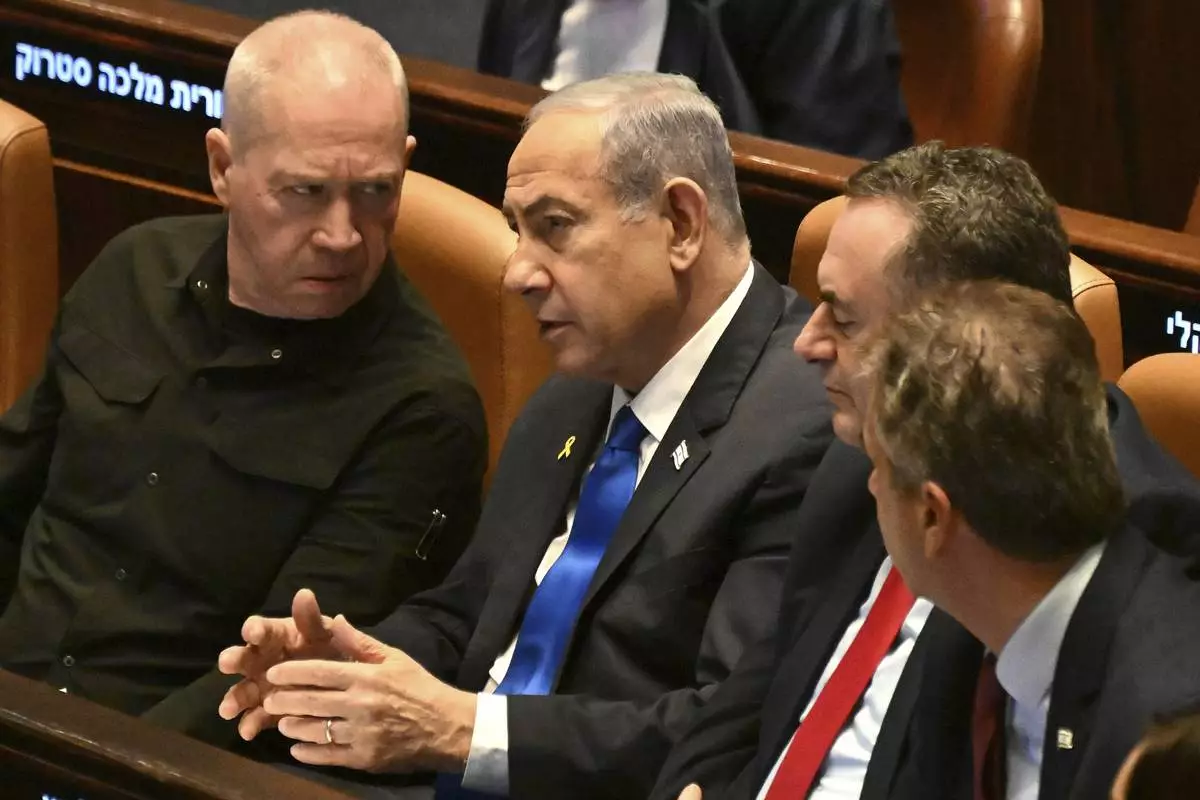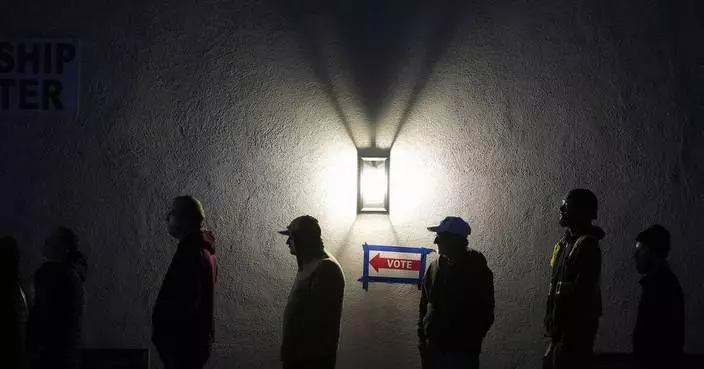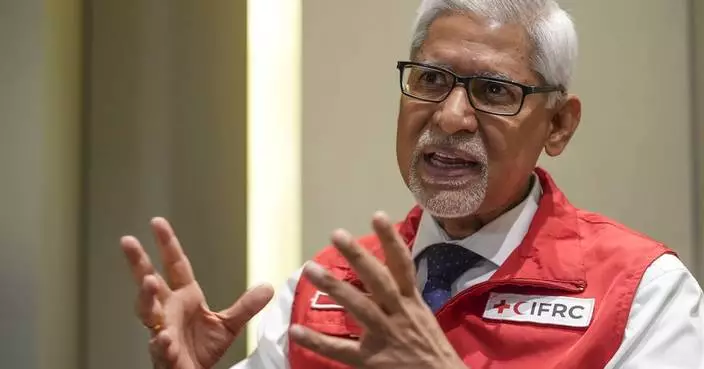WASHINGTON (AP) — The Biden administration said Monday it is making asylum restrictions at the southern border even tougher, as it's increasingly eager to show voters uneasy over immigration that it is taking a hard stance on border security.
The new rules, which toughen restrictions announced in June, bar migrants from being granted asylum when U.S. officials deem that the southern border is overwhelmed.
Under the previous rules, the U.S. could restrict asylum access when the number of migrants trying to enter the country between the official border crossings hit 2,500 per day. The daily numbers had to average below 1,500 per day for a week in order for the restrictions to be lifted.
The version rolled out Monday says the daily numbers will have to be below 1,500 for nearly a month before the restrictions can be lifted. And the administration is now counting all children toward that number, whereas previously only migrant children from Mexico were counted.
These changes, which go into effect on Tuesday, will make it much more difficult to lift the restrictions and allow people entering the country between the official border crossings eventually to apply for asylum in the U.S.
But the restrictions implemented in June have never been lifted because the numbers of border encounters have never gotten low enough for long enough, raising the question of why the administration felt the need to make them even tougher now. The seven-day average has gotten down to about 1,800 migrant encounters per day, the Department of Homeland Security said.
A senior administration official said Monday that the longer timeline was necessary to make sure that drops in immigration are sustained and not due to a one-time event. The official spoke on condition of anonymity to brief reporters about the tighter restrictions before they were made public.
Immigration advocates had harshly criticized the restrictions announced in June, saying the administration was slashing away at vital protections for people fleeing persecution.
Many weighed in Monday, saying that by making the rules even tougher the administration was sending people back into danger and not living up to its humanitarian obligations.
The American Immigration Lawyers Association said the new rule is effectively an asylum ban and that the exceptions aren't as substantive as the administration has made them out to be. The group said at the current rates of border crossings the asylum restrictions would be in place indefinitely.
“It is imperative that our nation have safe, orderly, and efficient processes at the border that also ensure fair and humane treatment of asylum seekers. The consequences of denying asylum to someone who is being persecuted can literally be a matter of life or death," the organization's president, Kelli Stump, said in a statement Monday.
The UN refugee agency said it had “profound concern” about the changes and that blocking asylum access violates international refugee law and “the humanitarian principles to which the United States has long been a leader.”
Secretary of Homeland Security Alejandro Mayorkas pushed back on suggestions that the updated rules amounted to an asylum ban. He said there were exceptions built into the rule for people who qualify and pointed to other programs such as an online appointment app the U.S. has that allows people to come to the U.S. and seek asylum.
“We have not cut off our asylum system,” the secretary said.
The exceptions include victims of a severe form of trafficking, who would still be allowed to apply for asylum.
The administration also allows people using its CBP One appointment system to apply for asylum, but those people must schedule an appointment on the app to come to an official border crossing point.
The administration has encouraged migrants to use that app instead of crossing the border illegally.
But demand far exceeds the 1,450 appointments available daily, and the administration has not indicated that it will increase the number of appointments.
The administration has touted its asylum restrictions, saying they have led to serious drops in the number of migrants coming to the southern border. The Department of Homeland Security said Monday that since the changes were announced in June, the daily number of people encountered by Border Patrol between the legal border crossings has fallen over 50%.
In a statement announcing the new rules, DHS called on Congress to do more to solve immigration problems.
Border security and immigration are a key weakness for the Biden administration and Vice President Kamala Harris, the Democratic presidential nominee.
Republican presidential nominee Donald Trump and others from his party have hammered away at the high numbers of migrants who’ve come to the southern border under the Biden administration, saying the White House and Harris haven’t done enough to restrict migration and secure the border.
Harris visited a border region of Arizona on Friday, her first visit as the Democratic nominee. She walked along the tall metal fence separating the U.S. from Mexico and called for a tightening of asylum rules while pushing for a better way to welcome immigrants legally.
“I reject the false choice that suggests we must choose either between securing our border and creating a system that is orderly, safe and humane,” Harris said. “We can and we must do both.”

Democratic presidential nominee Vice President Kamala Harris talks with John Modlin, the chief patrol agent for the Tucson Sector of the U.S. Border Patrol, right, and Blaine Bennett, the U.S. Border Patrol Douglas Station border patrol agent in charge, as she visits the U.S. border with Mexico in Douglas, Ariz., Friday, Sept. 27, 2024. (AP Photo/Carolyn Kaster)











